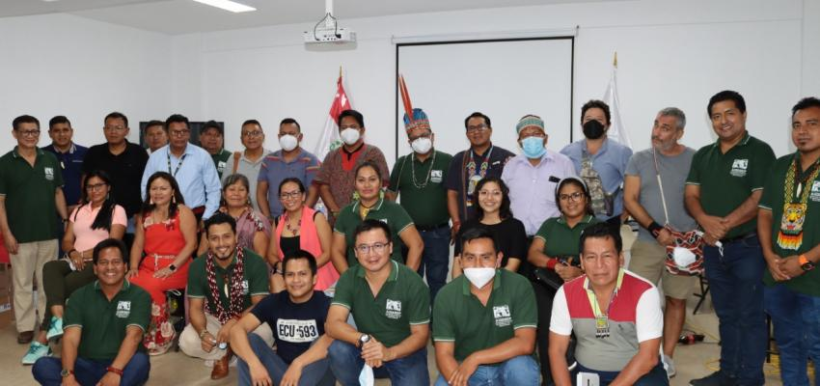The Interethnic Association of the Peruvian Jungle (AIDESEP) announced the elaboration of the Great Agenda of the Indigenous Amazon that will be presented to the government to generate public policies in favour of the indigenous peoples.
Among the main axes are indigenous and intercultural health, intercultural bilingual education, and agrarian reform with an Amazonian focus.
The issue of indigenous institutions includes the proposed creation of a Vice-Ministry of Interculturality attached to the Presidency of the Council of Ministers, as well as the creation of the Indigenous Electoral District.
The Indigenous Economy proposal proposes allocating 1 percent of the budget to attend to the life plans of indigenous peoples, and relaunching the Indigenous Economy programmes, as well as Climate and autonomous territories.
The so-called Agenda Grande de la Amazonía Indígena was shared with the participation of the presidents and leaders of the nine regional organisations of AIDESEP, the National Board of Directors and the technical team.
“We are the authors of the best proposals. AIDESEP’s Big Agenda has to be presented to the central government so that public policies in favour of indigenous peoples can be generated”, said Apu Jorge Pérez at the beginning of the meeting.
Each of the proposals was analysed by the leaders and members of the technical team, and contributions were made to improve them.
Afterwards, a meeting will be sought with the President of the Republic, Pedro Castillo, to ask him to prioritise the proposals of the Agenda Grande.
The Agenda for the Peruvian Amazon was published in the declaration for the “Unity and action for the Amazonian indigenous agenda”, where eight points are made with demands and proposals for the situation of the indigenous peoples.
The issues addressed include territorial and social security with protection of defenders, intercultural education and health, and an indigenous economy as an alternative to extractivism.
Initiatives for better attention to the demands of the peoples and for effective and representative indigenous political participation are also highlighted.
Among the pending points are the demands of the peoples of the oil circuit in Loreto, who have been demanding environmental remediation and the implementation of basic services.
With regard to community land titling, Aidesep recalled the need to close this historic debt owed by the state to the indigenous peoples.
“Because of the lack of land titling and legal protection, drug traffickers and land traffickers are entering the communities,” said Pérez Rubio.
“When the communities and leaders go out to repel this invasion, they are shot at point-blank range,” he explained.
In this sense, he recalled that, in addition to helping to safeguard the lives of indigenous peoples, territorial protection contributes to preventing deforestation in the Amazon area.
He also emphasised the importance of protecting indigenous peoples in voluntary isolation and initial contact (PIACI) by installing checkpoints to guarantee the intangibility of their territories.
Similarly, Aidesep proposes strengthening the organisations through the Jurisdictional/Regional Indigenous Redd+ in order to prevent funding for emissions reductions from being monopolised by regional governments.
It also calls for the avoidance of wasteful state projects and the inclusion of communities in the Second Agrarian Reform programme.






